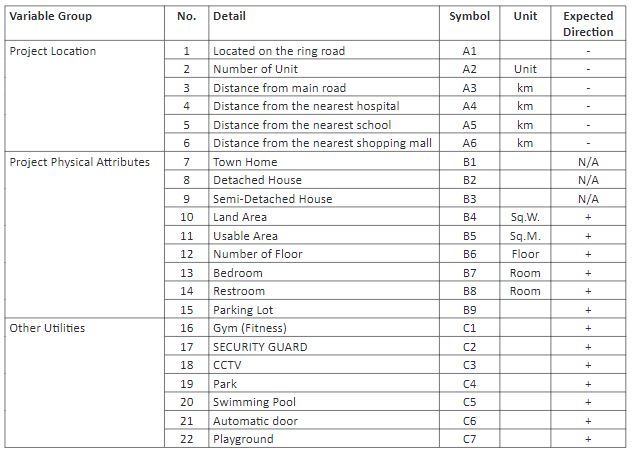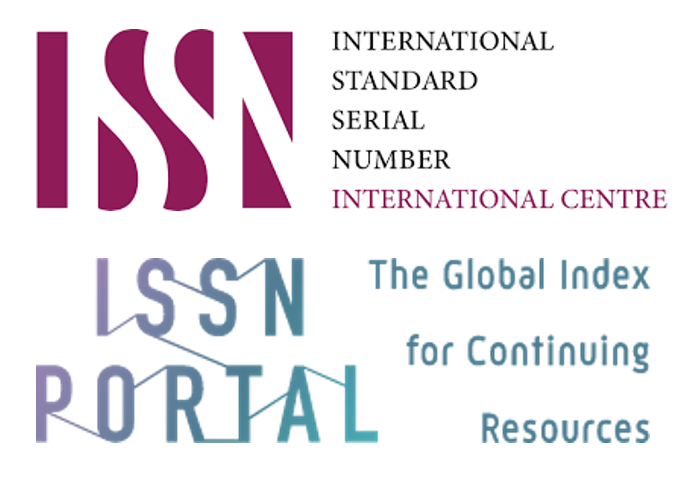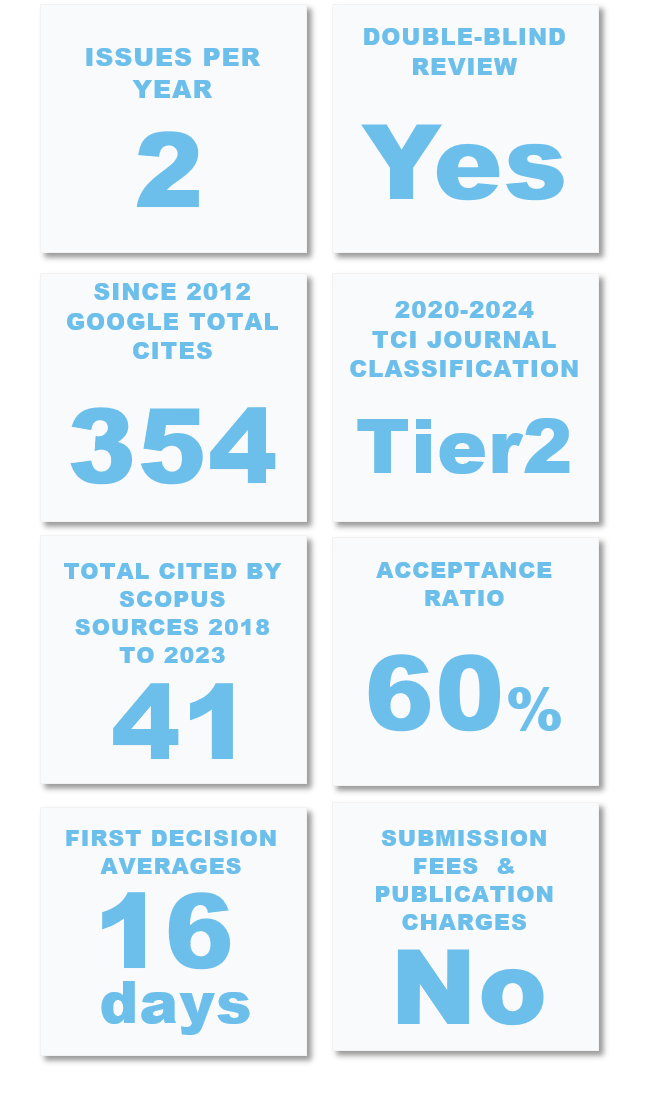Prediction Model of House Price in Chiang Mai Province
Keywords:
Prediction Model, House Price, Hedonic Price Model, Regression Analysis, Chiang MaiAbstract
Pre-sale house price estimation has been a challenge for real estate developers, especially for emerging markets such as Chiang Mai. Therefore, this study calibrated and established a Hedonic Pricing Model to forecast the sales price of new houses from 125 residential development projects located in Chiang Mai, Thailand. In this study, a total of 22 variables were recorded, and the data were classified into 3 categories, which were location, physical attribute of the project and the nature of the house and land. The results showed 8 out of 22 variables were well incorporated in the model, and the Semi-Natural Logarithm form was determined as the most suitable model for predicting the pre-sale price at this target location. The asking price of a new detached housing project was found at 25.36% higher than other types of houses. Meanwhile, the newly-constructed house price was decreased by 9.98% if the project location was adjacent to or further away from the ring road, which was distant away from the Chiang Mai Metropolitan area. Furthermore, the house’s pre-sale price was dropped when the available number of units in the project was large. The outcomes of this study indicate the effectiveness of the developed model as a proficient tool for estimating the competitive price for newly built properties in Chiang Mai.
Downloads
References
Bunjam, C., & Nilbai, T. (2017). An analysis of factors determining the housing estate’s price using hedonic price method: Case study of Bang KhunThian district, Bangkok Paper presented at the The 9th National Conference of Economists.
Guntawilai, B., & Sirisrisakulchai, J. (2017). Evaluation of state property land value of number 1723 by hedonic pricing method, tambon Donkaew, Mae Rim, Chiang Mai. Chiang Mai University,
Lehner, M. (2011). Modelling housing prices in Singapore applying spatial hedonic regression.
Lorlertsakul, M., & Sakworawich, A. (2017). Spatial regression model predicting condominium price per square meter in Bangkok. Academic Journal of Architecture, 66.
Malaitham, S., Fukuda, A., Vichiensan, V., & Wasuntarasook,V. (2020). Hedonic pricing model of assessed and market land values: A case study in Bangkok metropolitan area, Thailand. Case Studies on Transport Policy, 8(1), 153-162.
McGrath, B., Sangawongse, S., Thaikatoo, D., & Corte, M. B.(2017). The architecture of the metacity: land use change, patch dynamics and urban form in Chiang Mai, Thailand. Urban Planning, 2, 53+.
Rinchumphu, D., Kridakorn Na Ayutthaya, T., & Yunus, R. (2020). Property price attributable to subdivision neighbourhood designs: Hedonic pricing model approach in Bangkok metropolitan region, Thailand. International Journal of Built Environment Sustainability, 7(3), 37-47.
Srivanit, M. (2010). Effects of climate change and spatial characteristics on urban heat island in Chiang Mai. Paper presented at the The First Climate Thailand Conference 2010.
Tochaiwat, K., & Likitanupak, W. (2017). Bangkok four-star hotels’ average daily rate (ADR) prediction model. Pacific Rim Property Research Journal, 23, 1-16. doi:10.1080/14445921.2017.1375663

Downloads
Published
How to Cite
Issue
Section
License
Copyright (c) 2020 International Journal of Building, Urban, Interior and Landscape Technology (BUILT)

This work is licensed under a Creative Commons Attribution-NonCommercial-NoDerivatives 4.0 International License.











